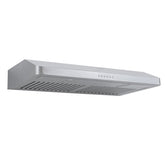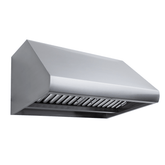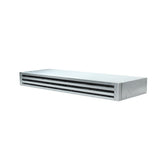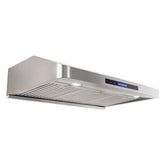As a natural gas grill owner, you might be aware of the convenience and efficiency that comes with using your grill. However, it's also important to be aware of the risks associated with leaving your natural gas grill on. A grill that has been left on, even inadvertently, can present a variety of hazards that can endanger your home and well-being.
One of the risks posed by leaving a natural gas grill on is the potential for gas leaks, leading to a buildup of gas in the surrounding area. This can be especially dangerous if an ignition source, such as a flame, comes into contact with the accumulated gas, leading to a fire or explosion. To ensure your safety, you should always turn off your grill and thoroughly inspect it for leaks after each use.
Aside from the dangers of a potential fire, leaving your natural gas grill on can also cause damage to the grill itself. When the grill is left on for an extended period, it can lead to a state known as bypass, where the grill cannot reach proper cooking temperatures, often remaining no hotter than 250 to 300°F. By being mindful of these risks and taking the necessary precautions, you can enjoy your grilling experience while ensuring the safety of your property and loved ones.
Brief Overview of the Risks Associated with Leaving a Natural Gas Grill On
Safety Concerns
Leaving a natural gas grill unattended poses several safety risks to you and your surroundings. In the presence of children or animals, they may accidentally touch the hot grill, resulting in burns or injuries. Moreover, unattended cooking increases the risk of flare-ups, which can quickly spiral out of control if not managed promptly.
Potential Fire Hazard
Natural gas grills can contribute to home fires if not handled carefully. According to the National Fire Protection Association, gas grills are involved in an average of 8,900 home fires per year. When you leave the grill unattended, you might not be able to react swiftly to changes that could lead to a fire, putting your home and loved ones at risk.
Carbon Monoxide Poisoning
Although the risk is lower with natural gas grills compared to charcoal grills, carbon monoxide (CO) poisoning is still a potential hazard. CO is a colorless, odorless, and tasteless gas that can build up when your grill is used in poorly ventilated areas. Prolonged exposure to CO can lead to symptoms such as headache, dizziness, nausea, and even death in extreme cases. To minimize this risk, ensure that your grill is used in well-ventilated outdoor areas.
Gas Leaks
A prominent hazard of leaving your natural gas grill on for extended periods is the potential for gas leaks from the grill valves or connections. At night, it is especially crucial to be aware of such leaks, as they can lead to fires if not detected and addressed in time. It is vital to inspect your grill regularly and pay close attention to gas connections and hoses to prevent this risk.
How Long Can You Leave a Gas Grill On?
The Dangers of Leaving a Gas Grill On Overnight
Leaving your gas grill on overnight may seem harmless, but it presents several safety risks. One major concern is the buildup of gas, which can lead to an explosion or fire, especially if the flame goes out during the night. This can be prevented by ensuring that you keep the lid open when lighting the grill.
Another danger is the accumulation of grease in the grill and the grease trap. The grease can serve as a secondary fuel source, igniting and causing a fire. To reduce this risk, regularly clean your grill and the grease trap to prevent grease buildup.
The Risks of Leaving a Gas Grill On for Days
Leaving your gas grill on for days poses even greater risks. Not only do the dangers mentioned for overnight use still apply, but additional factors come into play. One such risk is propane tanks running empty, which could lead to gas leaks when you attempt to use the grill again. To avoid this issue, always turn off the propane tank after each use.
Another consequence of leaving your gas grill on for days is the potential to enter a reduced gas flow state known as bypass. In this state, the grill won't reach proper cooking temperatures, typically staying between 250 and 300°F. Again, always turn off the propane tank after grilling to prevent issues like a bypass.
Lastly, it is essential to secure the area around the grill. Keep children, pets, and any combustible materials away from the grill to ensure safety. Store extra propane tanks at least 10 feet away from the grill and have a fire extinguisher nearby.
What Happens When You Leave a Gas Grill On
When leaving your natural gas grill on, various outcomes can occur, depending on the specific circumstances surrounding your grill. Let's explore what can happen and why it is essential to avoid doing so.
The Cost of Leaving a Natural Gas Grill On Overnight
Leaving your gas grill on overnight can increase your utility bill significantly. Not only is it wasteful when it comes to energy resources, but it can also become an added expense on your monthly gas bills. Make sure to double-check that the grill is off after each use, saving both energy and money.
Burning Off Chemicals and Gas Buildup on the Grill
Leaving your gas grill on for an extended period can result in burnt residue and an increased risk of flare-ups. If the grill remains on even with the lid closed, it can lead to a buildup of carbon monoxide at dangerous levels, posing a significant risk for anyone nearby.
Moreover, the extended heat can cause the residue from food fat and grease to ignite, potentially causing a fire. It is crucial to clean your grill grates and manage any potential flare-ups to ensure a safe grilling experience.
Preventing Accidents
Accidents with natural gas grills can happen, but by following safety guidelines and performing regular maintenance, you can significantly reduce risks. Let's take a look at how to safely use your grill and the importance of regular maintenance.
Tips for Safely Using a Natural Gas Grill
When grilling, safety should be your top priority. Here are some useful tips to help you safely use a natural gas grill:
- Position your grill at a safe distance from your house, porch, garage, awning, deck railing, and landscaping to prevent potential fires.
- Never grill inside or in an enclosed area as both charcoal and gas grills produce potentially deadly carbon monoxide gas.
- Avoid wearing loose clothing while grilling to prevent the possibility of catching fire.
- Always turn off the burners and gas supply after grilling. Some grills, like Napoleon grills, use SafetyGlow, which changes the light on the grill control knobs from blue to red when the gas is on; this makes sure you can't accidentally leave the grill on.
- Keep a water spray bottle handy to control small flare-ups during the grilling process.
Importance of Regular Maintenance and Inspection
Maintaining and inspecting your grill is crucial for safe operation. Here are some aspects to consider:
- Regularly check for leaks or breaks in the gas lines, as these were the primary cause of gas grill fires in reported incidents.
- Make sure connections are tight, and hoses are in good shape; replace them if necessary.
- Inspect burner tubes for blockages and clean them to ensure proper gas flow.
- Keep the grill clean and free from grease build-up, as this can lead to dangerous flare-ups.
By following these tips and practicing regular maintenance, you can ensure a safe and enjoyable grilling experience with your natural gas grill.
FAQ
Here are some frequently asked questions and answers about the risks of leaving a natural gas grill on:
1. Can leaving a natural gas grill on cause a fire?
Yes, it can. If the grill is not cleaned properly or if there is a gas buildup, it can lead to a fire. Ensuring your grill is clean and properly maintained can help reduce this risk.
2. Can I leave my propane or natural gas grill on overnight?
It is not recommended to leave your propane or natural gas grill on overnight. Gas buildup can occur, leading to potential explosions or gas leaks.
3. What should I do if I accidentally left my natural gas grill on?
If you realize you left your natural gas grill on, turn off the burners and then the gas supply. If your grill has SafetyGlow technology, the control knob lights will change from blue to red when the gas is on, reminding you to turn it off.
4. How do I safely light my natural gas grill?
Keep the lid open, turn on the gas supply, and ignite the burner. If the flame goes out, turn off the grill and gas supply, and wait at least five minutes before attempting to relight it.
5. What should I avoid after realizing I left the gas on?
Avoid igniting any fire or using electrical devices, including your phone, as these can potentially ignite the gas and cause a fire.
Conclusion
Recap of the Risks
Throughout the article, you've learned about the risks associated with leaving a natural gas grill on. One of the primary risks is gas buildup, which can lead to an explosion when a flame is ignited or cause gas leaks that saturate the surrounding area with dangerous fumes if not well ventilated.
Another risk involves natural gas and propane grill explosions if not operated properly, with propane being heavier and taking longer to dissipate than natural gas.
Importance of Proper Use and Maintenance of a Natural Gas Grill
To minimize the risks and ensure a safe grilling experience, proper use, and maintenance of your natural gas grill is crucial. Follow these guidelines to keep your grill in good working order:
- Always read and follow the manufacturer's instructions for your specific grill model.
- Inspect the natural gas hose and connections regularly for signs of wear, cracks, or leaks.
- Keep your grill clean by removing grease buildup and burnt food particles.
- Never leave your grill unattended while it's in use, and always turn off the gas valve when finished.
- Ensure your grill is positioned on a stable, level surface and away from flammable materials.
By taking these precautions, you can enjoy the benefits of natural gas grilling with peace of mind, knowing that you're doing everything you can to maintain a safe grilling environment.













